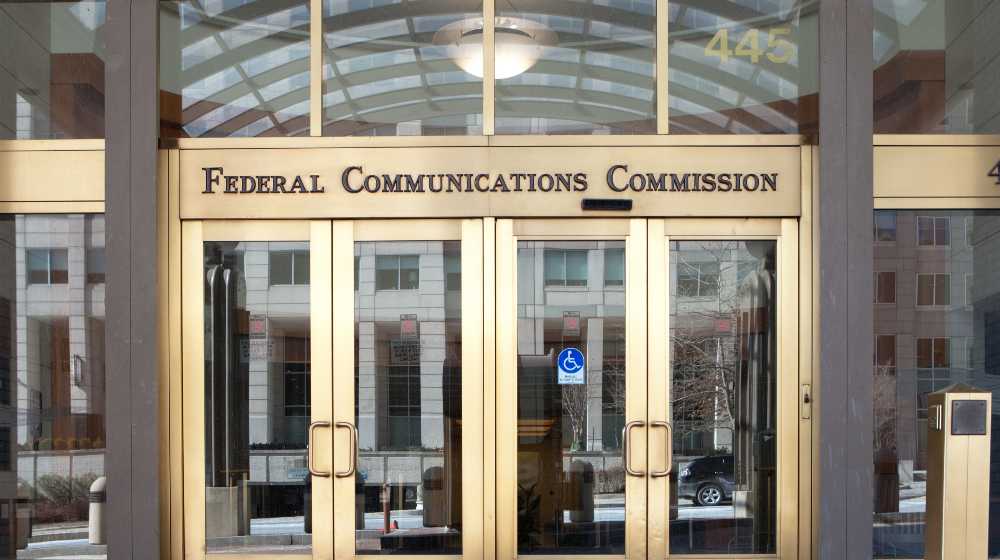Business
FCC Bans China Telecom From Operating in the US

The US Federal Communications Commission (FCC) brought the hammer down on China Telecom Americas. Citing national security concerns, the agency voted to revoke its permit to operate in the United States.
RELATED: Xi Jinping Warns Other Countries Not To Try To Stop China
CT To Cease All US Services

The decision forces China Telecom to put a stop to its entire US operations within the next 60 days. The company is China’s largest telecommunications company and has been operating in the country for almost 20 years.
The FCC explained its decision in a statement. It said that the company “is subject to exploitation, influence, and control by the Chinese government and is highly likely to be forced to comply with Chinese government requests without sufficient legal procedures subject to independent judicial oversight.”
In addition, the FCC said that Chinese government ownership and control poses “significant national security and law enforcement risks” for the US.
This arrangement allows the Chinese government to “access, store, disrupt, and/or misroute U.S. communications.”
Company Expresses Disappointment in FCC Decision
Meanwhile, China Telecom expressed disappointment in the outcome. “The FCC’s decision is disappointing. We plan to pursue all available options while continuing to serve our customers,” said a company spokesperson.
The Chinese telecoms giant lists more than 335 million subscribers worldwide as of 2019. It’s also the self-proclaimed leader and largest fixed-line and broadband operator in the world.
Additionally, the telecom firm provides networking services to official Chinese facilities in the US. Its mobile virtual network also assists the thriving Chinese community in the country.
This covers 4 million Chinese Americans, 2 million tourists, 300,000 students, and 1,500 businesses.
National Security Risks
In April 2020, the FCC warned about shutting down telecom companies closely tied with the Chinese government. Apart from China Telecom, the list includes China Unicom Americas, Pacific Networks Corp, and ComNet (USA) LLC.
US agencies cited national security risks when dealing with them. In fact, FCC Commissioner Brendan Carr said they “must remain vigilant to the threats posed” by China.
Meanwhile, Republican Senators Rob Portman (OH) and Tom Carper DE) hailed the FCC decision. They issued a joint statement and cited “substantial and serious national security and law enforcement risks” posed by China Telecom.
Last March, the FCC initiated action to revoke authorization for China Unicom Americas, Pacific Networks, and ComNet.
Two years earlier, the FCC unanimously voted to ban state-owned China Mobile from operating in the country.
FCC Purging Chinese Companies Due to Security Risks
The communications agency also took action against other technology companies that hailed from China. In 2020, the FCC tagged Huawei Technologies and ZTE Corp as national security threats to American communications networks.
As a result, US firms lost access to an $8.3 billion government fund for equipment bought from Huawei and ZTE. The FTC also ordered local carriers to immediately “rip and replace” all equipment provided by the two firms.
The FCC’s actions are a result of the US’s long-standing disputes with China over telecom companies and security concerns.
However, the US maintained that it gave companies like China Telecom a chance to rebut concerns. However, much like Beijing, the company refused to address concerns.
Watch the CNA news video US bans China Telecom from operating in the country over national security concerns:
Do you agree with the FCC decision to ban China Telecom from operating in the United States? Is the US right in not trusting China technology companies due to security risks?
Share with us your thoughts on Chinese telecom companies. Leave your thoughts in the comments section below.
















1 Comment
Since when does the US help build the economy for a known communist country? Dis we not learn our lesson from the Cold War? Do we not realize that Ciña does not have our best interest in mind?